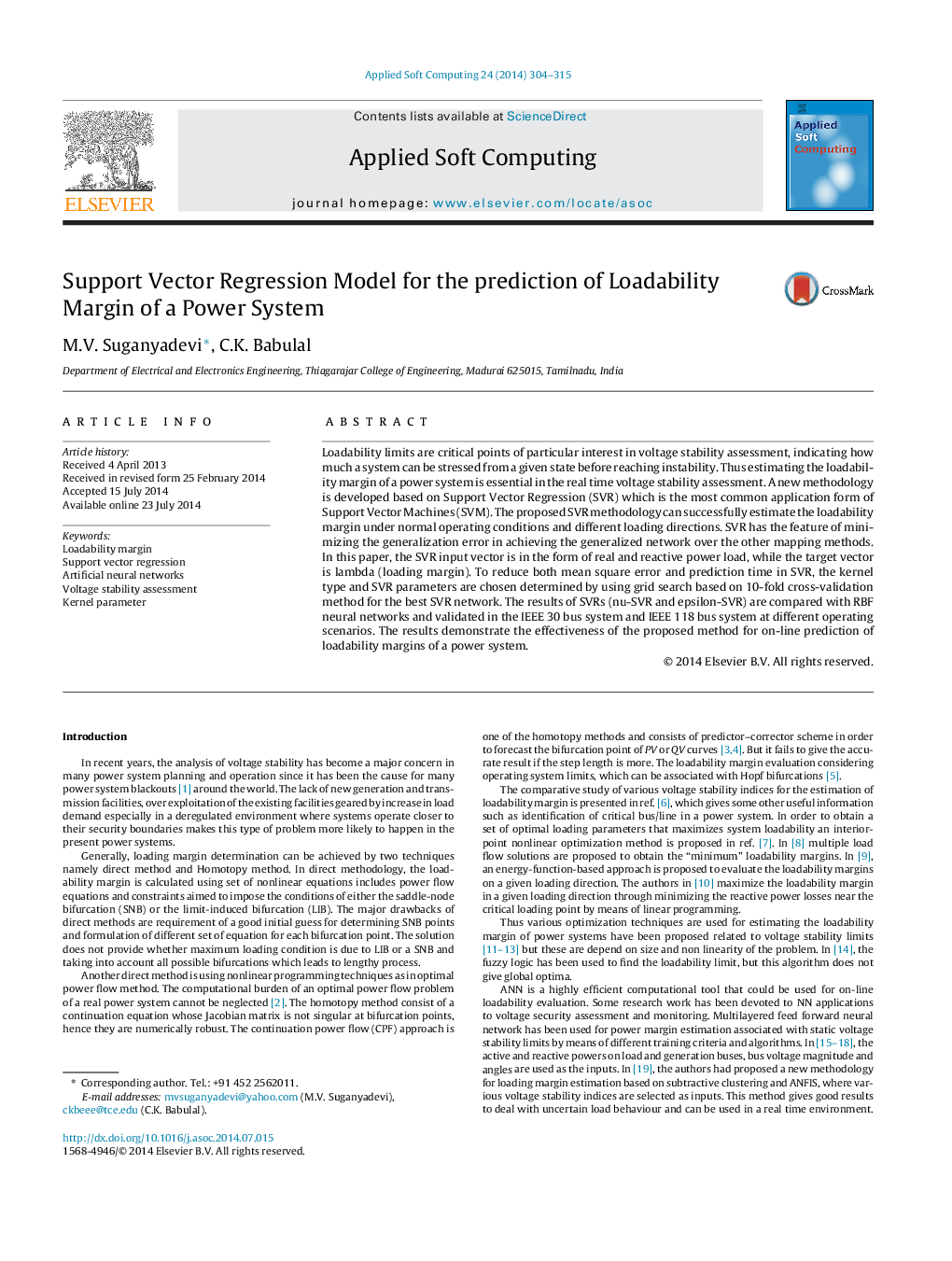| Article ID | Journal | Published Year | Pages | File Type |
|---|---|---|---|---|
| 6905781 | Applied Soft Computing | 2014 | 12 Pages |
Abstract
Loadability limits are critical points of particular interest in voltage stability assessment, indicating how much a system can be stressed from a given state before reaching instability. Thus estimating the loadability margin of a power system is essential in the real time voltage stability assessment. A new methodology is developed based on Support Vector Regression (SVR) which is the most common application form of Support Vector Machines (SVM). The proposed SVR methodology can successfully estimate the loadability margin under normal operating conditions and different loading directions. SVR has the feature of minimizing the generalization error in achieving the generalized network over the other mapping methods. In this paper, the SVR input vector is in the form of real and reactive power load, while the target vector is lambda (loading margin). To reduce both mean square error and prediction time in SVR, the kernel type and SVR parameters are chosen determined by using grid search based on 10-fold cross-validation method for the best SVR network. The results of SVRs (nu-SVR and epsilon-SVR) are compared with RBF neural networks and validated in the IEEE 30 bus system and IEEE 118 bus system at different operating scenarios. The results demonstrate the effectiveness of the proposed method for on-line prediction of loadability margins of a power system.
Related Topics
Physical Sciences and Engineering
Computer Science
Computer Science Applications
Authors
M.V. Suganyadevi, C.K. Babulal,
